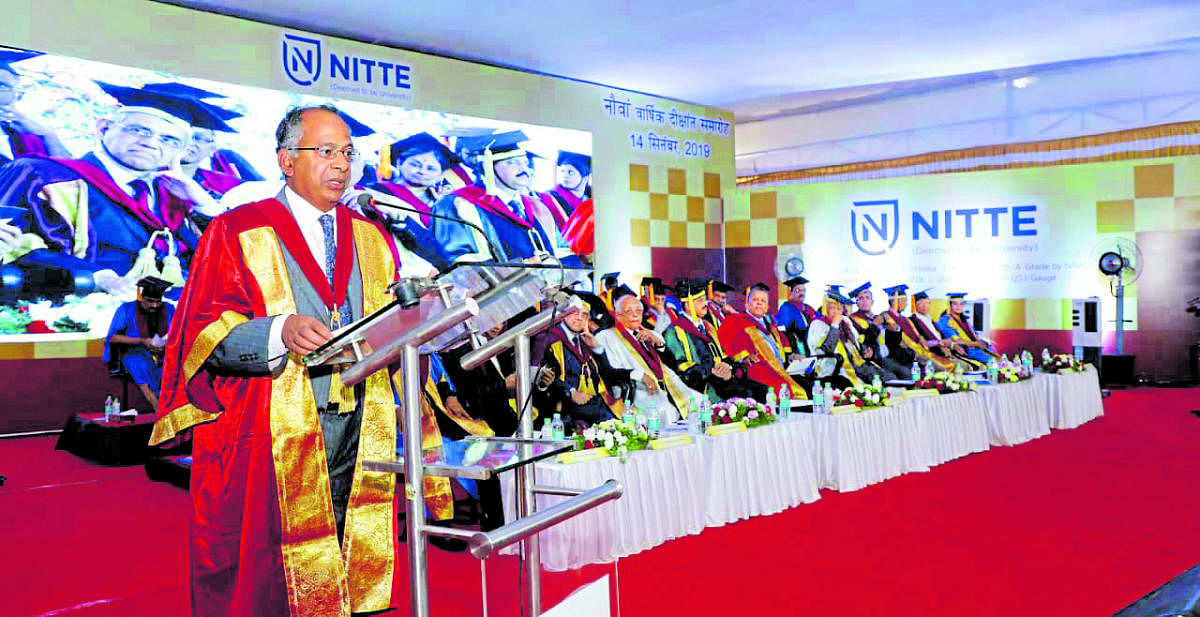
The Indian higher education system is the second largest in the world. With growth in the proportion of young people in this country, India has potential to be the largest higher education system in the world in the near future, said Rama Thirunamachandran, vice-chancellor of Canterbury Christ Church University.
Rama Thirunamachandran was addressing new graduands of Nitte (Deemed to be University) during its ninth annual convocation held on Saturday. A total of 916 students were awarded the degree certificates.
Talking about education and the role of university in the 21st century in India, he said the country is at the forefront of globalisation and the knowledge revolution. “With over 900 universities and 40,000 colleges, 1.3 million teachers and 36.6 million students, the higher education system is second largest in the world,” he pointed out.
On the role of Indian universities in this century, he said that there are some fundamentals of a university which transcend centuries as well as nations. Zakir Hussain, former president of India, summed it up nicely when he said: ‘The role of universities is to provide intellectual and moral leadership’. The hallmark of good university education is self-education and independent learning, said Thirunamachandran.
He expressed that though the 20th and 21st centuries have seen much progress in terms of science, engineering, technology and medicine, the world still has challenges like poverty, famine, disease, climate change and others.
“So today’s graduates carry a huge responsibility on their shoulders to rectify them. Also, now organisations and our nations need people who have passion, the vision and purpose to deliver societal goals.”
The learning shouldn’t stop at convocation day, said Thirunamachandran adding that we all remain students for life because we must all keep growing.
“Last month, Amazon announced that it has plans to spend a large sum over six years to retain a third of its US Workforce (About 1 lakh). Amazon says that it is responding to the fourth industrial revolution and increase in automation and machine learning. This illustrates the importance of why lifelong learning must be a central part of the future of today’s graduates. Universities also have to respond to these changes and should allow people to work and study at the same time,” added Thirunamachandran.